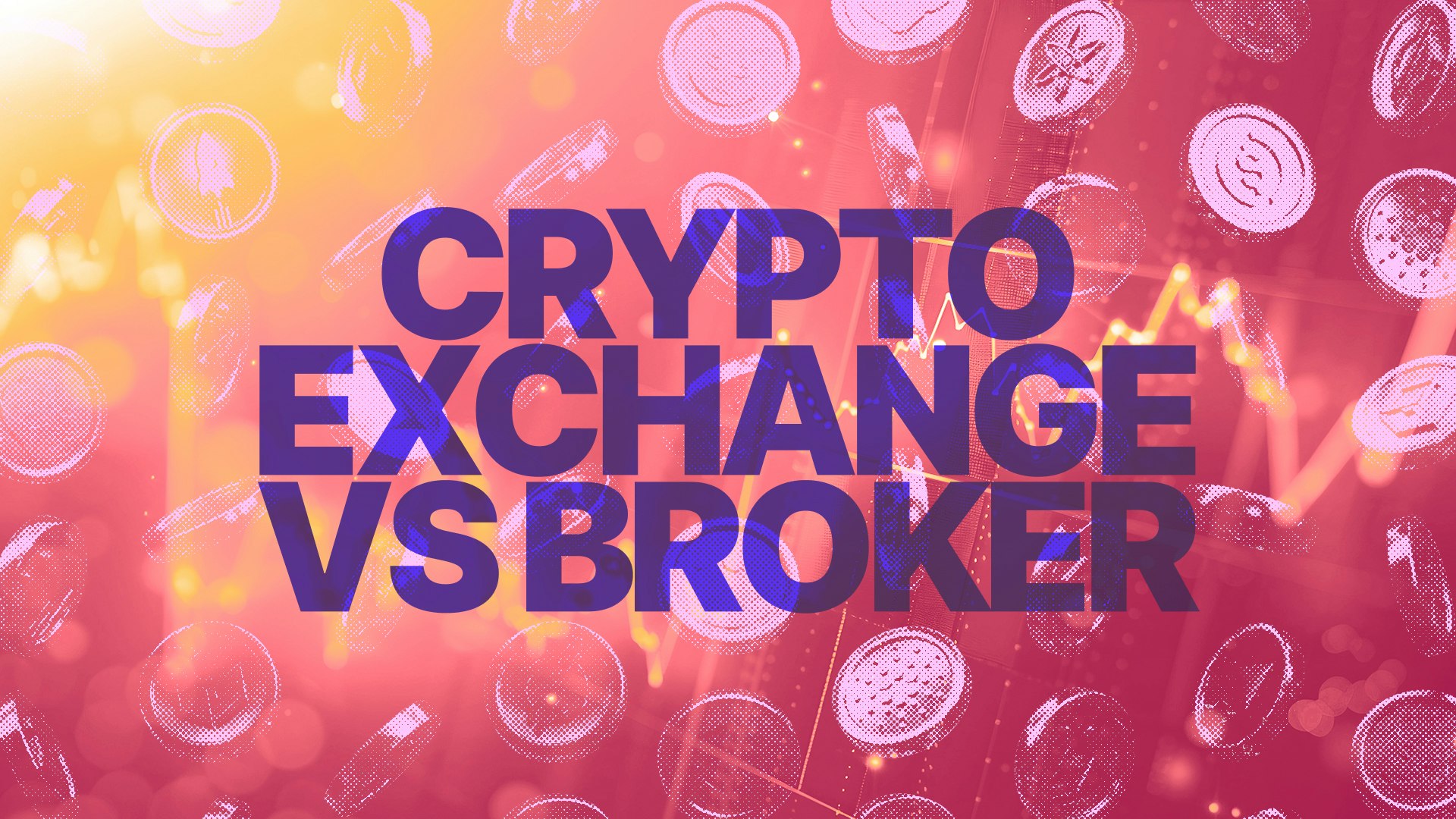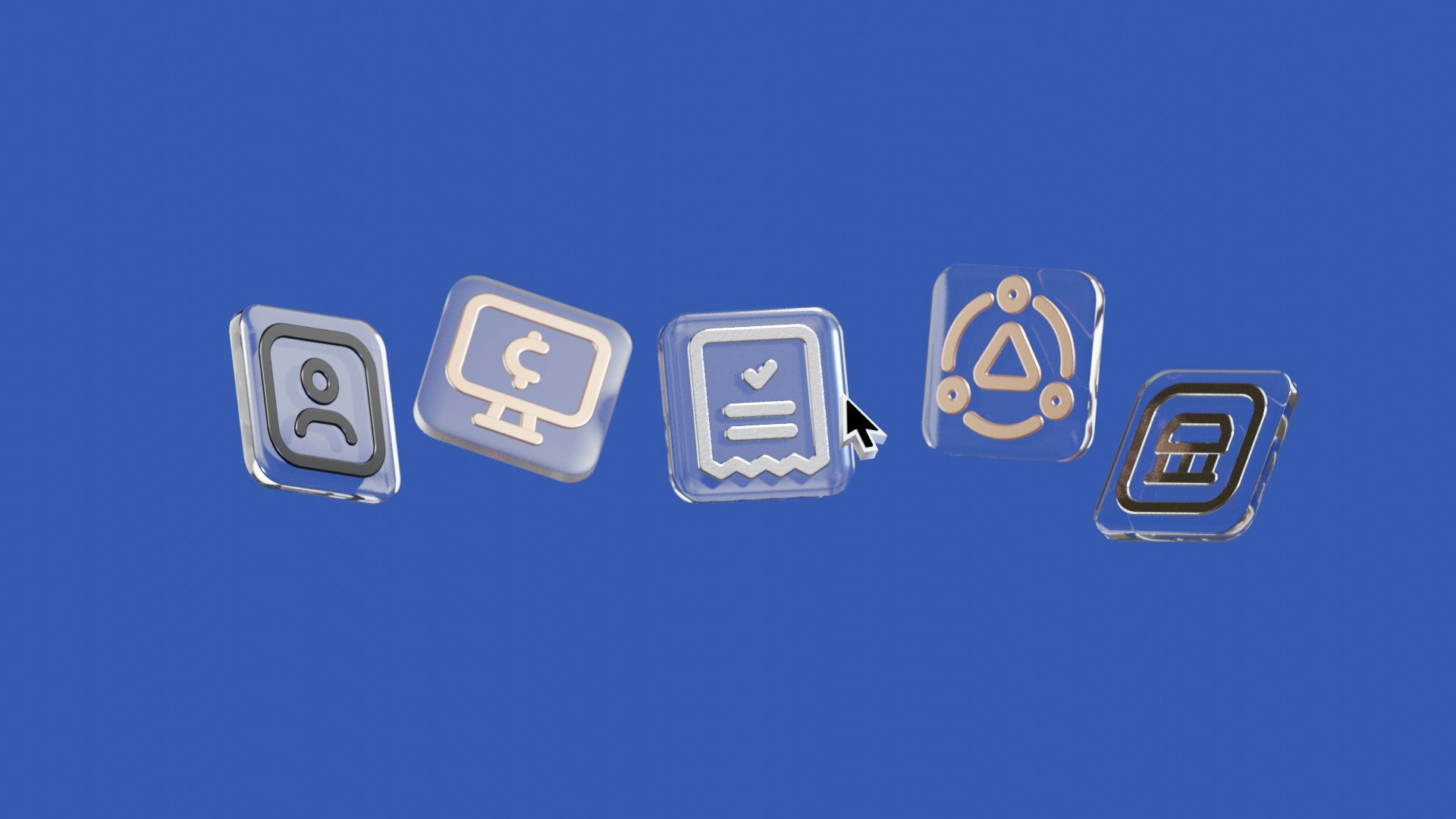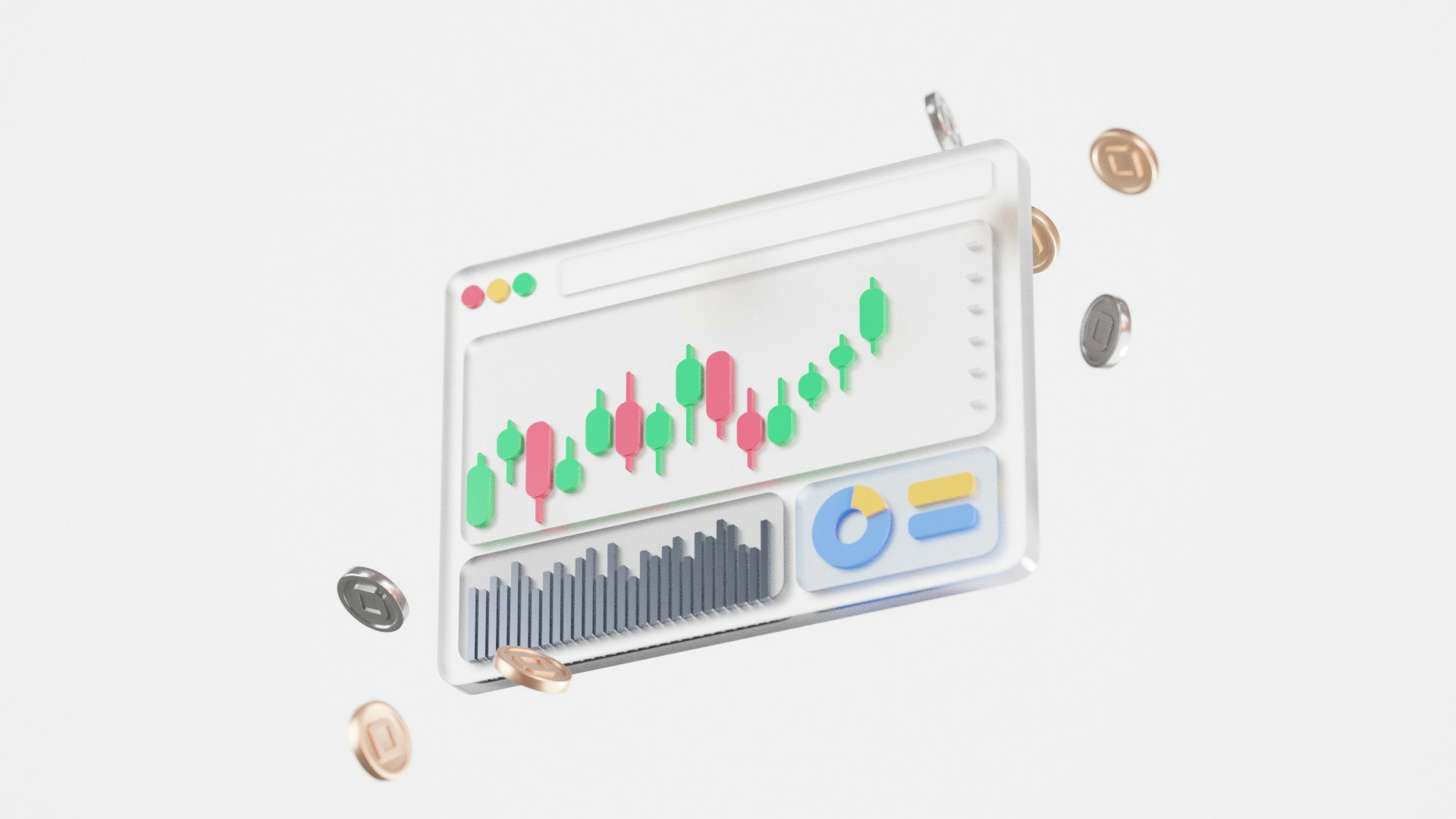What is a Crypto Exchange? What is a Broker?
A crypto exchange that you want to use might not be an exchange at all, it might be a broker. Here's the difference between crypto exchanges vs crypto brokers.
In this article...
- Crypto platforms tend to operate in two different ways
- One way is operating as a crypto broker, the other way is operating as an exchange
- Which one is better for what you want to do with your digital assets?

If you are interested in trading cryptocurrencies, you might have heard of two different ways to do it. If you haven’t, then listen up, because this is an important knowledge nugget.
Crypto platforms tend to operate in two different ways. One way is operating as a crypto broker, the other way is operating as an exchange.
But what are they? And how do they differ? And which one is better for what you want to do with your digital assets? And how do you know which is which? In this article, we will break it down for you. So read on!
What is a cryptocurrency exchange?
A crypto exchange is a website or an app that lets you trade cryptocurrencies with other users directly. A crypto exchange, such as CoinJar, Independent Reserve, or Binance Australia, provides a platform where buyers and sellers can exchange cryptocurrencies based on the current market prices. To use an exchange, you have to follow the trading rules of the platform.
There are two different types of exchanges: Decentralized and centralized.
What is a centralized exchange?
A centralized crypto exchange is a website or an app that lets you buy and sell different kinds of digital assets, such as Bitcoin, Ethereum, XRP or even NFTs. You can also exchange one type of crypto for another, or use everyday money like dollars to buy crypto.
You need to create an account on the exchange and verify your identity before you can use it. The exchange also charges you some fees for using its services.
Some pros and cons of using a centralized crypto exchange.
Ease
It is easy to use and has a lot of features, such as charts, news, and customer support.
Options
It has a lot of cryptocurrency options, so you have a lot of choice when buying or selling cryptos.
Passwords
A crypto key or password is a code that allows you to access and manage your crypto funds. It is like a lock that only you have the key to. When you buy or sell crypto, you need to enter your key or password to confirm the transaction.
If you forget your key or password when using a decentralized exchange, you may lose your crypto forever. However if you use a centralized exchange, there is a way to get access to your crypto back.
A centralized crypto acts more like a bank in some ways. You don’t have to store your private keys on your own device or wallet. The platform does it for you. You can reset your password if you forget it by contacting the customer support of the platform.
However there is a phrase in crypto: “Not your keys, not your coins”. This means that you have to trust the crypto exchange won’t go bankrupt or be hacked. But say if something happened to you, and your family needed to get access to your crypto. Then you could get access to funds on a centralized exchange.
Privacy
It is not as private as a decentralized exchange, because the exchange knows who you are and what you do with your digital money. It can also share your information with the government or other parties if they ask for it.
Rules
You have to follow the rules of the exchange, like you would with normal money and a bank.
Crypto exchanges usually offer more advanced and innovative trading features and tools. You won’t need to know this as a beginner yet, but once you get more comfortable with crypto culture, you will be able to look into things like margin trading, futures, options, and staking.
Social aspects
Crypto exchanges, such as CoinJar, also have social and educational aspects, such as social media forums, and learn sections where you can follow what interests you.
Rules
You have to follow rules. Before choosing a crypto exchange, you should learn the trading rules and processes of the platform. This is because it is somewhat like joining a bank, that is, you have to abide by the rules of the platform.
Fees
You should also compare their fees and commissions with other exchanges and the broker prices. You should also fully understand the risks involved in trading cryptocurrencies, such as price volatility, hacks, and thefts.
While security is getting so much better as the industry matures, criminals will be criminals and are always looking for a way to scam people.

What is a decentralized exchange?
A decentralized crypto exchange is a way of trading different kinds of crypto, without using a website or an app that controls your money. Instead, you can trade directly with other people who can trade cryptos with you directly too. You don’t usually have to show ID to use this kind of exchange.
Some pros and cons of using a decentralized crypto exchange.
-You can trade anonymously and nobody can track what you do with your digital money.
-You can trade with anyone, anywhere, anytime. You don’t have to follow the rules or regulations of the exchange or the government.
-It is more difficult to use than a centalized exchange and has fewer features, such as charts, news, and customer support.
-It has fewer cryptocurrencies, and fewer people using it, so you might not be able to swap with others if you are into more obscure cryptocurrencies.
What is a crypto broker?
A crypto broker is someone who helps you buy or sell cryptocurrencies with dollars or other fiat currencies. A crypto broker can be a company, platform, or individual who acts as a middleman between you and the crypto market.
To use a broker, you have to pay them a fee or a premium for their service. An example of a broker is Coinbase.
Pros and cons of using a crypto broker
Like crypto exchanges, using a crypto broker has some benefits and drawbacks for users too.
-They tend to offer a wide range of digital money options, with sometimes hundreds of coins to choose from.
-They comply with Australian laws and regulations, and verify your identity to prevent fraud. However some of the exchanges they use to process the transactions may not comply, and it is hard to know more information about this as they don’t tend to disclose who they use.
-Brokers tend to charge relatively high trading fees or spreads, which can add up if you trade frequently or in large amounts, seeing as they use exchanges to process the trades.
-Because brokers use exchanges to buy crypto, you have to trust that the broker knows what they are doing and that they are using reputable exchanges. For example, Australian company Digital Surge lost $33 million when another exchange, FTX, collapsed.
So you want to be sure you trust that the broker has good alliances with sound exchanges.
Do I need a broker to buy crypto?
No, you do not need a broker to buy crypto. You can buy crypto directly from a crypto exchange. But you can also buy crypto from a crypto broker, which is an intermediary that helps you buy or sell cryptocurrencies at a fixed price, usually using fiat currencies or other cryptocurrencies.
However, the broker will use crypto exchanges that you didn’t choose yourself, and some of these could be overseas.
On the other hand, if you use a crypto exchange, your activity is not “farmed out” to third parties, the transaction is done on the crypto exchange that you have chosen to use.
Conclusion
A crypto exchange and a crypto broker are two ways of buying and selling cryptocurrencies. Both crypto exchanges and brokers have their own advantages and disadvantages, depending on the user’s needs, preferences, and goals.
Frequently asked questions
What is the difference between a broker and an exchange in cryptocurrency?
The difference between a broker and an exchange is that a broker is an intermediary that helps you buy or sell cryptocurrencies at a fixed price, while an exchange is a marketplace where you can trade cryptocurrencies with other users at a variable price. A broker usually charges a fee or commission for their service, while an exchange may charge a transaction fee or spread.
What are the three main types of crypto exchanges?
The three main types of crypto exchanges are centralized, decentralized, and a broker.
How do centralized and decentralized exchanges differ in terms of security and control when I'm investing in cryptocurrencies?
Centralized exchanges work similarly to traditional stock exchanges, acting as intermediaries to facilitate buying and selling digital assets.
They typically have robust security features, such as KYC/AML compliance and custody of user funds, but are subject to regulations like those from the Securities and Exchange Commission. Decentralized exchanges (DEXs), on the other hand, are peer-to-peer marketplaces with no central authority, offering more user control and privacy.
However, DEXs can have lower trading volumes and may require users to manage their own crypto wallets, placing greater responsibility on the individual for security.


Suggested Articles

CoinJar Card: How to Use It and How to Troubleshoot
The CoinJar card makes it easy to spend your cryptocurrency just like cash. Here's what you need to know.Read more
Forgotten Password? How to Recover Your CoinJar Account
Occasionally, our customers can forget their password. Here's what to do next if this happens to you.Read more
What Do CoinJar Customers Redeem Most With Their Rewards Points?
Australian CoinJar customers can use accumulated rewards points to get cool stuff from the CoinJar Rewards store. But what are the most popular items?Read moreBrowse by topic
The above article is not to be read as investment, legal or tax advice and takes no account of particular personal or market circumstances; all readers should seek independent investment, legal and tax advice before investing in cryptocurrencies.
This article is provided for general information and educational purposes only. No responsibility or liability is accepted for any errors of fact or omission expressed therein. CoinJar, Inc. makes no representation or warranty of any kind, express or implied, regarding the accuracy, validity, reliability, availability, or completeness of any such information.
Past performance is not a reliable indicator of future results.
Your information is handled in accordance with CoinJar’s Privacy Policy.
Copyright © 2025 CoinJar, Inc. All rights reserved.
CoinJar, Inc. is a registered Money Services Business with FinCEN and licensed as a money transmitter, NMLS #2492913. For a list of states in which CoinJar, Inc. is licensed or authorized to operate, please visit here. In certain other states, money transmission services are provided by Cross River Bank, Member FDIC.
This site is protected by reCAPTCHA and the Google Privacy Policy and Terms of Service apply.

